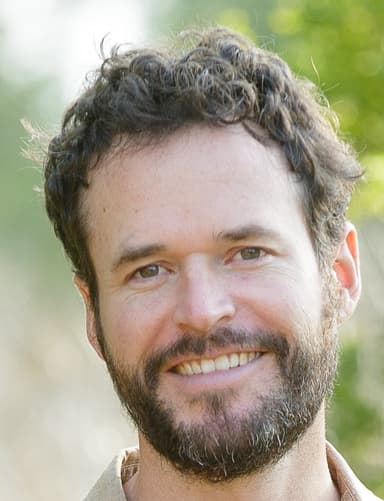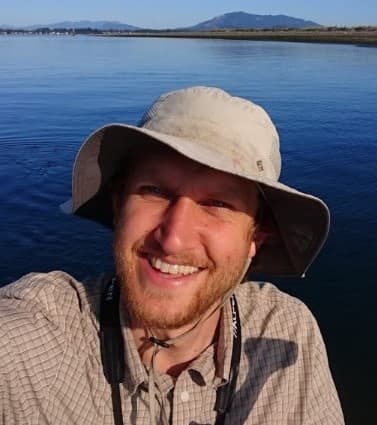About Us
The Yuba Watershed Institute (YWI) is a Nevada City–based 501(c)(3) nonprofit dedicated to the health of forests and waterways in the Yuba River watershed. We connect people to the land through hands-on stewardship and education.
What We Do
Our work focuses on two main program areas:
- Forest Health: fuels reduction, forest restoration, and collaborative projects that build resilience across public and private lands.
- Education: public events such as the annual Fungus Foray, publications including Tree Rings and our books, and other community learning opportunities.
Founded in 1990, YWI partners with landowners, agencies, and local organizations to advance ecological resilience and protect biological diversity for generations to come.
Staff

Bio
Chris Friedel is the Executive Director of the Yuba Watershed Institute, where he has led day-to-day operations and major forest health initiatives since 2018. With nearly two decades of experience in ecological restoration, Chris has worked across both public and private lands in California as a vegetation ecologist, project manager, and nonprofit leader. He has secured more than $3 million in funding for landscape-scale resilience projects in the Yuba River watershed, building collaborations with agencies, landowners, and local communities. Chris holds a B.S. in Earth Systems from Stanford University.

Bio
Theo Fitanides is a Landscape Resilience Project Coordinator with the Yuba Watershed Institute, bringing more than a decade of experience in botany, habitat restoration, and native plant cultivation. He has worked with organizations including Sierra Streams Institute, East Bay Regional Park District’s Botanic Garden, and the California Native Plant Society’s Native Here Nursery, where he managed operations and coordinated volunteer programs. Theo’s background also includes roles as a staff botanist and field biologist, conducting nesting bird surveys, habitat assessments, and conservation projects across California. A graduate of Cal Poly San Luis Obispo with a B.S. in Biological Sciences, Theo specializes in the ecology and restoration of California native plants and their role in resilient forest ecosystems.
Board of Directors
- Daniel Nicholson — President
- Amber Cone — Vice President
- Ann Hobbs — Treasurer
- Robert Erickson
- Kurt Lorenz
- Rebecca Wayman
- Robert Kelly
Our History
The Yuba Watershed Institute was born in 1990, at the height of the “timber wars” that swept across the American West. On the San Juan Ridge, between the Middle and South Yuba Rivers, neighbors began meeting to discuss threats to nearby Bureau of Land Management parcels. At the time, the BLM was considering selling off forest tracts based on their timber value—an approach that would have led to heavy logging and subdivision. Alarmed residents, including writer Gary Snyder and forest ecologist Don Harkin, rallied to protect these lands and met with BLM field manager Deane Swickard, who encouraged them to form a nonprofit. Within a year, the Yuba Watershed Institute (YWI) was incorporated as a 501(c)(3).
From the beginning, YWI embodied collaboration. In 1991 the group signed a cooperative agreement with BLM and the Timber Framers Guild to jointly manage nearly 2,000 acres of forest. They named the land the 'Inimim Forest, after the Nisenan Maidu word for ponderosa pine. Volunteers, scientists, and local schools soon joined forces to inventory wildlife, map vegetation, and draft the first community-written management plan for federal forestlands in the United States (1995).
The Institute quickly became more than a forest watchdog. Members launched Tree Rings, a journal blending science, essays, poetry, and art; hosted public conferences on forest health; and created community traditions like the annual Fungus Foray, which continues to inspire curiosity about local ecology.
Over three decades, YWI has carried out forest thinning, prescribed burns, and invasive plant management across hundreds of acres of the 'Inimim, while also fostering a deep cultural sense of place. Its projects have connected residents to their watershed through workdays, field walks, and school programs.
Today, the Institute's legacy of data collection, mapping, and community engagement is paying dividends. With more than thirty years of experience and broad public trust, YWI is now leading efforts to prepare Sierra Nevada forests for the challenges of the 21st century: wildfire, drought, and climate change. From its beginnings around kitchen tables on the Ridge to its role as a regional leader in resilience planning, YWI continues to live up to its founding vision: to care for this watershed with both knowledge and love.